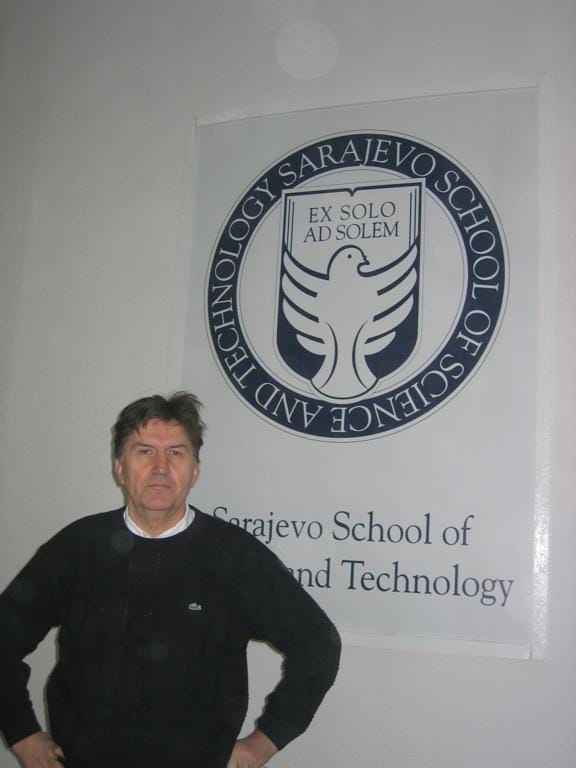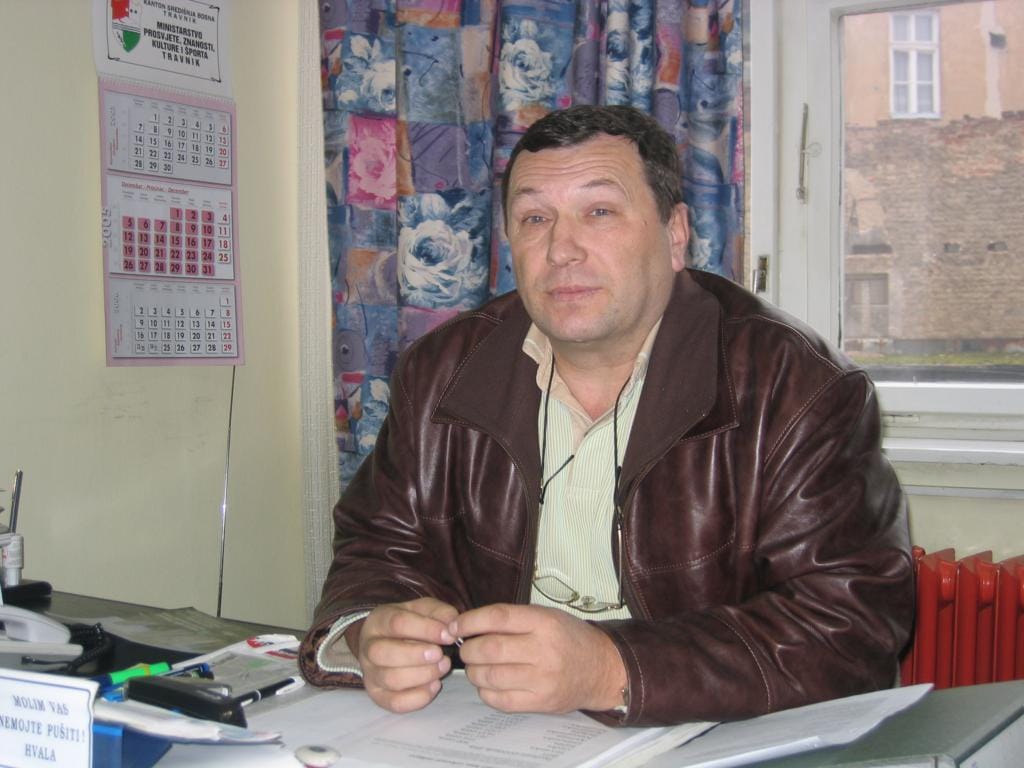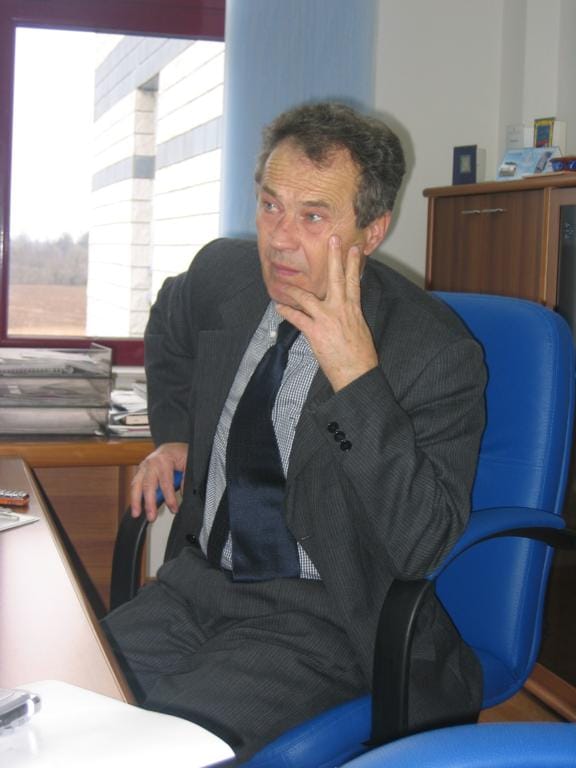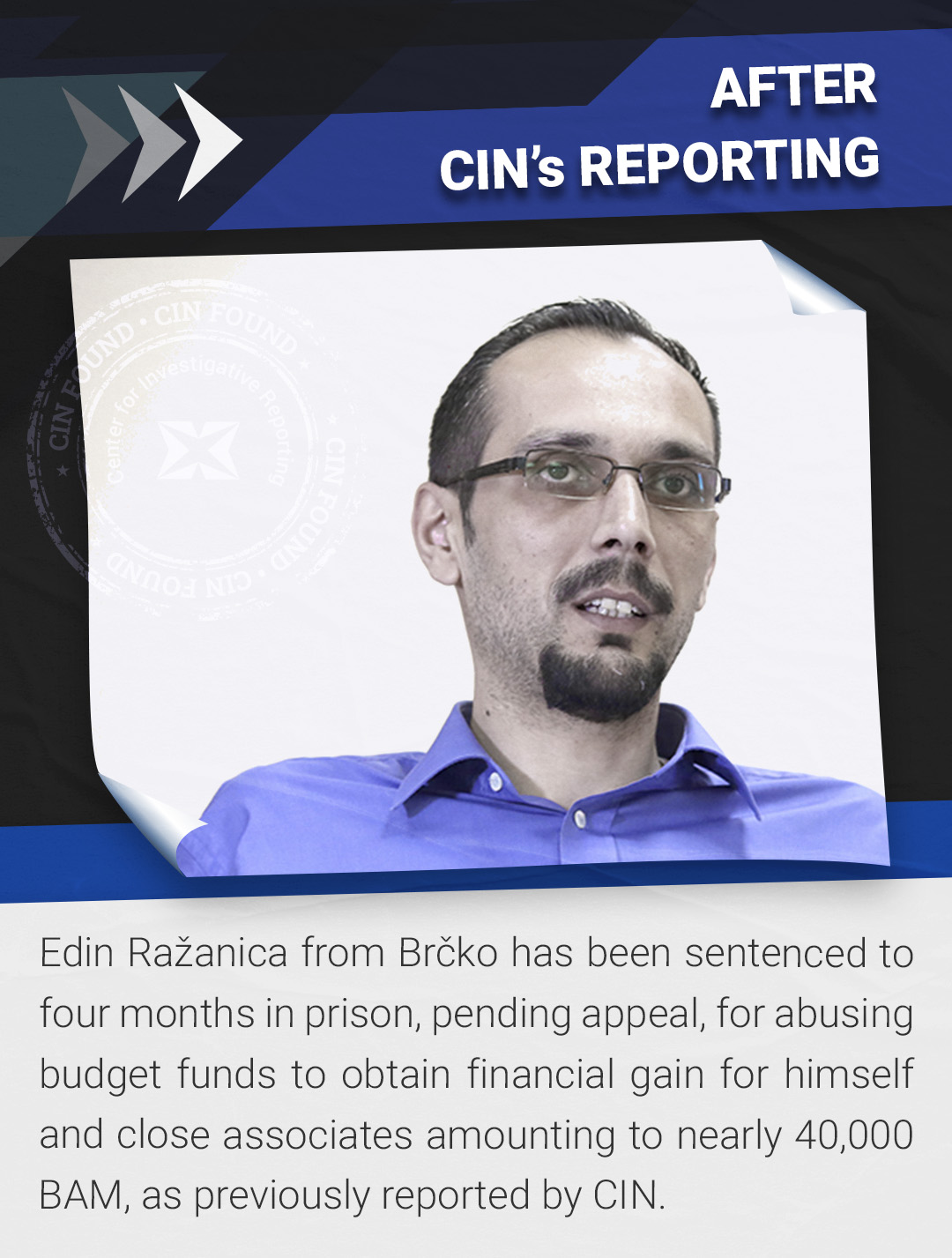Željko Perić from Bijeljina, an information technology student at Slobomir University, the largest private university in Bosnian and Herzegovina, pays 4,000 KM a year in tuition because of the hands-on experience on modern equipment the school promises students.
But the junior doesn’t know if the diploma he expects to earn in about a year will help him get a job or even be recognized by BiH authorities.
‘Nothing can surprise me considering the state of the country we live in’ he said. In six years, since the Banja Luka School of Communications opened as the first private college in BiH, 28 private schools have set up classrooms and now serve more than 3,000 students. Several more schools have been issued licenses or been granted preliminary approval but haven’t started. Some institutions haven’t bothered with those legalities before enrolling students.
Administrators at private schools say they provide a service that BiH public universities do not and that the modernizing reforms the public schools are struggling to put into place are already working in their schools. They boast of interactive teaching, student-centered learning, fair and objective grading and evaluation of students.
The Center for Investigative Reporting in Sarajevo (CIN) found those boasts not always accurate.
In BiH it is difficult for perspective students to tell good schools from bad. Businessmen looking for profits and prestige can take advantage of weak regulation and open schools. There is no single set of requirements to open a private school and regulation of them varies greatly among the entities and cantons that share this job.
In addition, BiH has no national accreditation agency like those in other European countries which insures that every college and university meets minimum standards.
This situation makes it easy for deans and professors at private schools to trumpet the quality of teaching and the successes of their schools and to unfairly criticize their competitors.
The pros and cons of private schools
Private school students CIN talked with over the past two months seem content with the higher-priced education they are receiving.
They said they can take courses public universities don’t offer. They like the facilities and equipment at some schools and they note that private schools give weak or unmotivated students who did not qualify for study at public universities another chance for a degree. Competition with good private schools could drive public schools to a higher level of excellence, some experts add.
However, there’s another side to the story.
BiH employers who have not had much experience hiring graduates of private facilities remain suspicious. In a focus group that Prism Research conducted at the end of last year for CIN, employers revealed their doubts about private schools and indicated that a degree from one of them would not help an applicant to get a job with them.
Viktor Marić, until recently deputy minister for education for the Zapadno-Hercegovački Canton, said students should think twice about going to a private school because not all their degrees will be recognized.
‘When the holder of an unknown degree shows up, we are asking the University of (West) Mostar to give its opinion. If the university says we can accredit it, than that’s what we’re doing, and if it says it cannot, then we’re turning it down’ said Marić.
Public and private schools in BiH actually share a close tie.
A majority of founders or directors of private schools are public university professors who continue to teach and enjoy tenure at their first jobs.
Some academics worry that public schools suffer when professors are heavily involved in competing private institutions and spending time there. But there are no laws and few rules against this.
For their part, private schools owners claim that new schools are plainly needed or there would not be so many opening.
Edin Bunda, an official of the Sarajevo School of Public Management, said that city’s public administrators need documented educational qualifications, but the public university offers no related courses for them.
‘This school will make it possible for them to become experts in this field’ said Bunda. Similarly, Stanislav Mićo Nakić says he could not find the insurance courses he is taking now at a private faculty in Novi Sad.
Still, need alone doesn’t fully explain the number of private schools.
Regulation of private schools is murky
Ljubiša Mladenović, manager of the School for Business Engineering and Management in Banja Luka, recalls how difficult it was to obtain a permit to open in 2002. He believes the rules have loosened, opening the way for too many new schools.
‘Now everything has turned into a mess’ said Mladenović.

Another Sarajevo professor Ejub Ganić, a former member of the BiH presidency and owner of the Sarajevo School of Science and Technology (SSST) said things are getting out of hand.
‘It gets dangerous when grocers start founding universities’ said Ganić referring to businessmen rather than professors opening schools.
Private faculties do have to meet the same criteria as public schools to open, but those criteria vary from place to place depending on what public body is in charge of education in a given locale.
Most of the new private facilities have opened in the Republika Srpska.
According to the RS University Act, entity authorities and local and foreign legal entities or individuals are allowed to open private institutions of higher education. They must submit a feasibility study, a staff list, a curriculum and a description of premises, furniture and equipment, and a strategy for making the school sustainable.
Whether they actually do this or not is questionable. If BiH ever establishes a national accrediting agency, teams of experts will visit all universities public and private every four years. In the meantime, cantonal level education ministries try to keep up with complaints they receive from students or the public.
In the Federation, the regulation of higher education is chaotic. The cantons of Posavina, Tuzla, Zenica-Doboj, West Hercegovina, Herceg-Bosna and Sarajevo have laws governing the opening of schools, but the other cantons do not. It is not clear in these cantons whether a university can be opened or who would approve it.
None of the bodies licensing new schools in the cantons has up to now set minimum requirements for personnel, equipment or academic practices, but Sarajevo cantonal officials did take action this month to do so.
It can be even more confusing in some circumstances. Professor Milenko Brkić of Sarajevo School of Humanities submitted a feasibility study for a new humanities faculty in Hercegovina Neretva Canton. It was turned down, canton officials say, because they have no law giving them authority to approve private universities and they didn’t like his study.
But Brkić says his feasibility study was excellent and if there is no law, there is no reason not to approve his school. On top of this, public universities in East and West Mostar are covered by different laws in the canton and use different curriculum: one Bosniak and the other Croatian.
‘It occurred to me that I could found it in Sarajevo first and then apply for a license in Herzegovina’ he said.
Srednjobosanski Canton has given licensees to departments from Tuzla and Mostar universities and to a private school of business. However, the canton doesn’t monitor or inspect the schools – because canton authorities say no law gives them that right.

‘Inspectors cannot go out in the field because they have no legal basis for it’ said Zoran Matošević, deputy minister of education.
Around BiH private schools have opened in classrooms leased from a primary school or coffee shops and with barebones funding. Local laws often do not set specific requirements for space or budgeting.
Forty-some students of the private School of Business Economics located in a Travnik borough of Kalibunar attend lectures in small classrooms.
Slavče Sandevi, in charge of student enrollment at the Višegrad branch of Sinergija University, is also a teacher at an elementary school in Višegrad. Lectures for the 170 students starting at the school, he said, take place at the elementary school.

Jovan Todorović, president of the private Slobomir University, complained last year about nearby Sinergija University enrolling students for classes they were not providing. Actually, classes were being held at that time. They began in October, with students of five faculties meeting in a Bijelijina factory, the Višegrad School and at the Zvornik School of Technology.
Dragan Mikerević, a professor at the Banja Luka School of Economics and a former RS prime minister, said private schools need more regulation.
‘To open a hairdresser’s you need to follow some rules, but this doesn’t apply to schools’ he said. He is worried about a slump in educational quality and long-term consequences for higher education.
Private schools are potentially very profitable, though owners are secretive about profits. For example, tuition at SSST is 10,000 KM a year and with 60 students it brings in 600,000 KM for its founder.
A year’s tuition at the University of Slobomir is 4,000 KM so that owner Slobodan Pavlović, a real estate tycoon, brings in 3.2 million KM from 800 students in Bijeljina and Doboj. Pavlović also provides loans through his Bank of Pavlović located in a building across the street from the school.
Pavlović and others say the school has not yet gotten full enrollment or turned a profit but, with an apparent eye on future possibility, he has resisted advice from academic experts to establish non-profit status for the school. This would make the school eligible for considerable grant money and visiting professors to improve academics.
Mladenović said he spends 1.2 million KM per year on rent and other costs in Banja Luka. The school has between 400 and 500 students paying 3,000 KM of tuition, earning as much as 1.5 million KM.
Academician Božidar Matić who also teaches at the private SSST and comes from a successful business background said such private schools would be a valuable addition to BiH education if professors there were doing research.
But it is unlikely that private schools professors have time for that, since most hold other jobs in public schools. Ganić, for example, continues to teach at the Sarajevo School of Mechanical Engineering.
Professor Aleksandar Bogdanić, co-owner and dean of the private School of Communications in Banja Luka also teaches at the Banja Luka School of Humanities. He hires visiting professors from public departments, though not, he said, those who hold multiple jobs.
‘Students are in touch with their professors by mail (and) phone at all times’ he assured.
Professor Džemo Tufekčić, interim president of Tuzla University, said professors in private sector are more accountable than their counterparts in public schools. Officials at the Banja Luka School of Communications noted that bad marks against several professors in evaluations written by students had resulted in their being let go.
‘If the students are not satisfied with a professor, he gets terminated. At a public school he would not be terminated’ the professor said.
Slobomir’s Todorović said that he would be glad to give tenure to professors, but the majority of their professors are from Belgrade and Novi Sad. It is unlikely that they would pack up their things and move to Bijeljina with their families.
Mikerević in Banja Luka said qualified Serbian professors were coming to BiH. In their own country they must retire at age 65, but in BiH they can work for another three years until 68, the lawful retirement age here.
Are Bologna reforms in place in private schools?
All private schools in BiH claim that they have implemented the vast improvements of the Bologna process far ahead of local schools.
The University of Washington in the United States believed in that claim by Slobomir University and in September agreed to an exchange program in which students and professors would travel from one school to another. Less than four months later, the Americans are pulling out, disillusioned.
‘They said they were instituting changes, the students want change’ said business Professor Vandra Lee Huber, ‘but the difference was that instead of being able to take an exam five times to pass, you could take it three times.’ She said she found professors at the school, largely recruited from among friends of the administrators, unfriendly and stuck in old-fashioned teaching habits.
Her colleague Patricia Kelley was even more discouraged by what she found at Slobomir in five visits. ‘I wept quite a bit in the month of December’ she said. Kelley said she developed an extensive plan to help the school improve, including convincing a number of top academics and businessmen in Europe and the US to agree to serve on an advisory board.
Though they had invited her to work on such a plan, school officials and Pavlovic backed away from making any changes. Eventually, Kelley, worried about her reputation as a serious expert in her field, apologized to the board members she had lined up.
At the village elementary school in Kalibunar where students of the Faculty of Business Economics attended a recent ‘Philosophy of Living’ class, senior teaching assistant M.A. Ismet Velagić told a visitor that private faculties such as his were superior to public ones because they practiced Bologna reforms.
What did that mean, exactly, he was asked. He answered: ‘This means new standards in education, new means of communication between professors and students…new learning methods. I am not so sure either… are you taping this?’
The school boasts of interactive teaching that encourages students to discuss, debate conflicting opinions and challenge teachers. But in a classroom packed with 40 students, Professor Rajko Kumanović talked while they quietly took notes, just as in any traditional classroom.
Students repeated their administrator’s boast that Bologna means something at their school. What did that mean, exactly?
‘I do not know’ said Edin Muminović from Fojnica. ‘That is something new. What do I know?’ He’s at the faculty, he said, because his parents talked him into it. They want him to get a diploma.
Even illegal schools are defended by their students – who also want to get diplomas. Until recently, a private school of business going under the name Benko Kotruljić operated in Ljubuški, Zapadno-Hercegovački Canton. Now, another school called ‘Fabus’ is operating illegally in the canton, according to Marić. The private business school is registered in Novi Sad and holding classes in a Grude restaurant named Otok.
Many of the students, he said, are officials from the Grude municipality who need degrees to hold their positions.
Stanislav Mićo Nakić, a postgraduate student at the school, works as coordinator for student enrollment. He said there is no real school, just consultations between professors and students. Exams take place in Novi Sad, he said.
Marić said he can do nothing about this situation because the school never registered as a school but as a citizen’s association. Its classes can meet in the restaurant the same way any group can hold a meeting in a restaurant.








